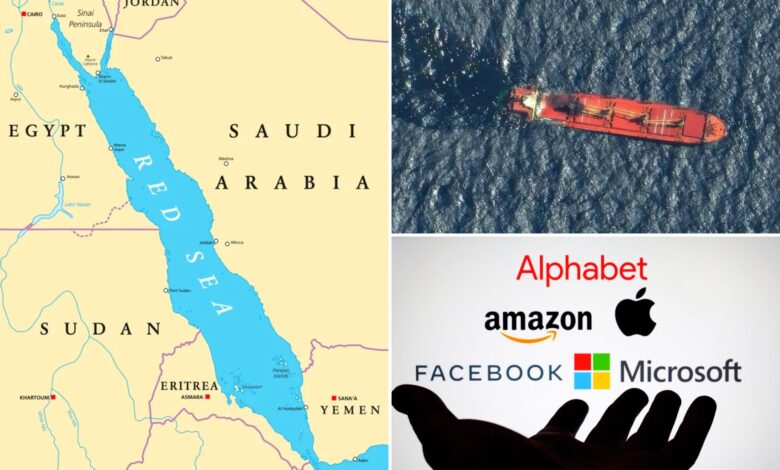Red Sea cables damaged, disrupting global internet traffic

Undersea cables in the Red Sea have been damaged, causing “significant” disruption to global telecommunications networks, according to reports.
Though it wasn’t immediately clear how the cables were marred, Yemeni government officials warned that Houthi rebels may target the submarine cables, according to CNN, which has forced internet providers to divert as much as 25% of internet traffic between Asia, Europe and the Middle East.
The Iran-backed terrorist group has already been attacking commercial vessels traveling the Red Sea ever since Israel’s ground assault on the Gaza Strip in November — forcing ships to reroute and spiking shipping costs by more than 600%.
Yemeni rebel leader Abdel Malek al-Houthi denied the allegations. “We have no intention of targeting sea cables providing internet to countries in the region,” he said, according to CNN.
Yemen’s government has since claimed — without offering any evidence — that US and British military units operating in the region could also be behind the damage, CNN reported.
HGC Global Communications, one of Hong Kong’s largest Wi-Fi providers, said that four of 15-plus submarine in the cables in the Red Sea had been cut, causing a “significant” disruption to an estimated quarter of traffic.
Among the networks affected is Asia-Africa-Europe 1 (AAE-1), a more than 15,500-mile cable system connecting South East Asia to Europe via Egypt, according to CNN, citing HGC’s statement on the outage.
The Europe India Gateway (EIG) has also been damaged, which connects Europe, the Middle East and India.
Most of these large telecoms companies rely on multiple undersea cables, per CNN, which allows them to reroute traffic and ensure uninterrupted service.
In recent years, American tech behemoths like Microsoft and Facebook-parent Meta have co-created and funded a high-speed cable, called MAREA, which has snaked through the Atlantic Ocean, from Virginia Beach, Va. to Bilboa, Spain, since 2016.
Google also has ownership stakes in seven submarine cables while Amazon is the major capacity buyer of a cable called Hawaiki, according to telecoms industry data firm TeleGeography, though none of them were impacted by Monday’s outage.




